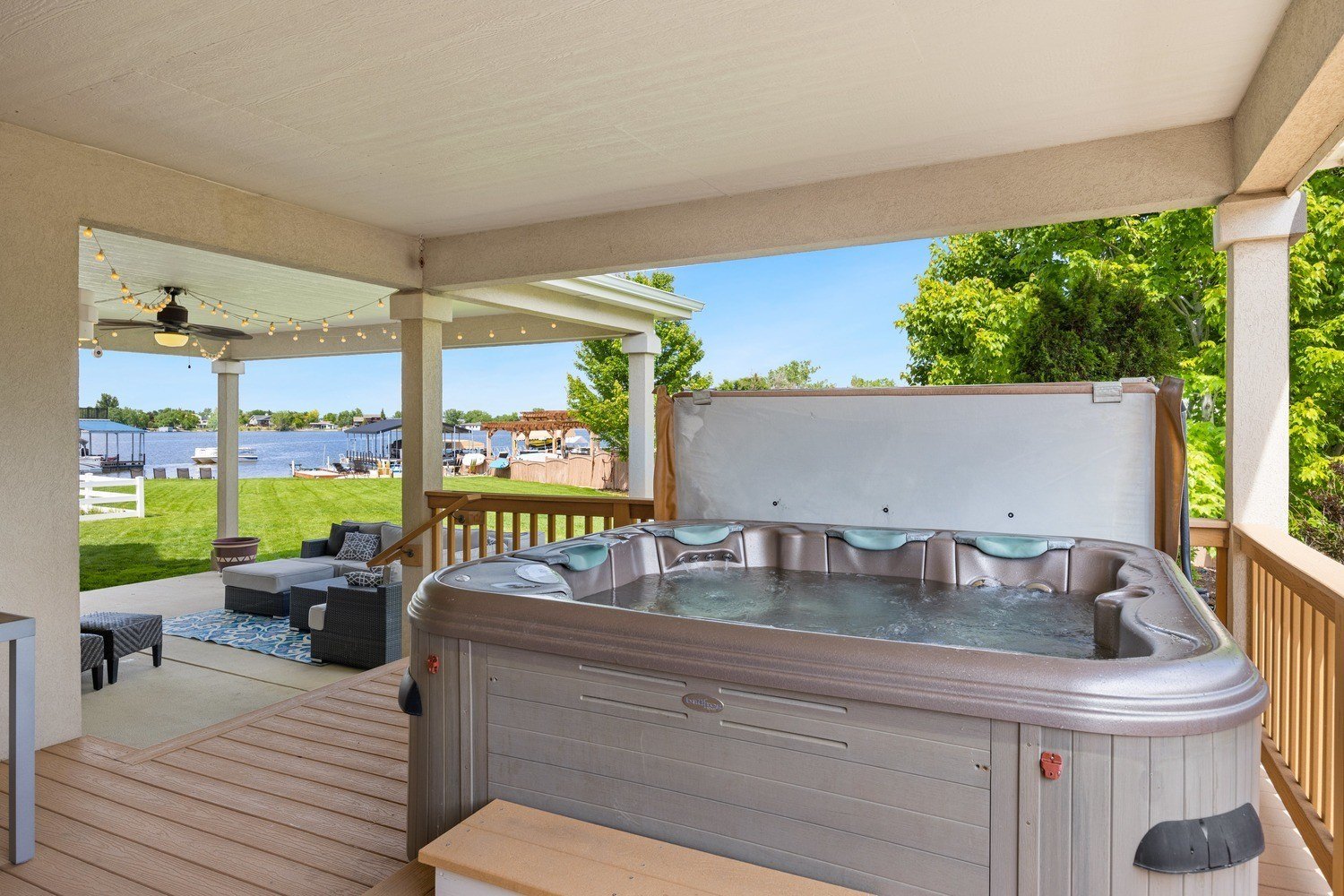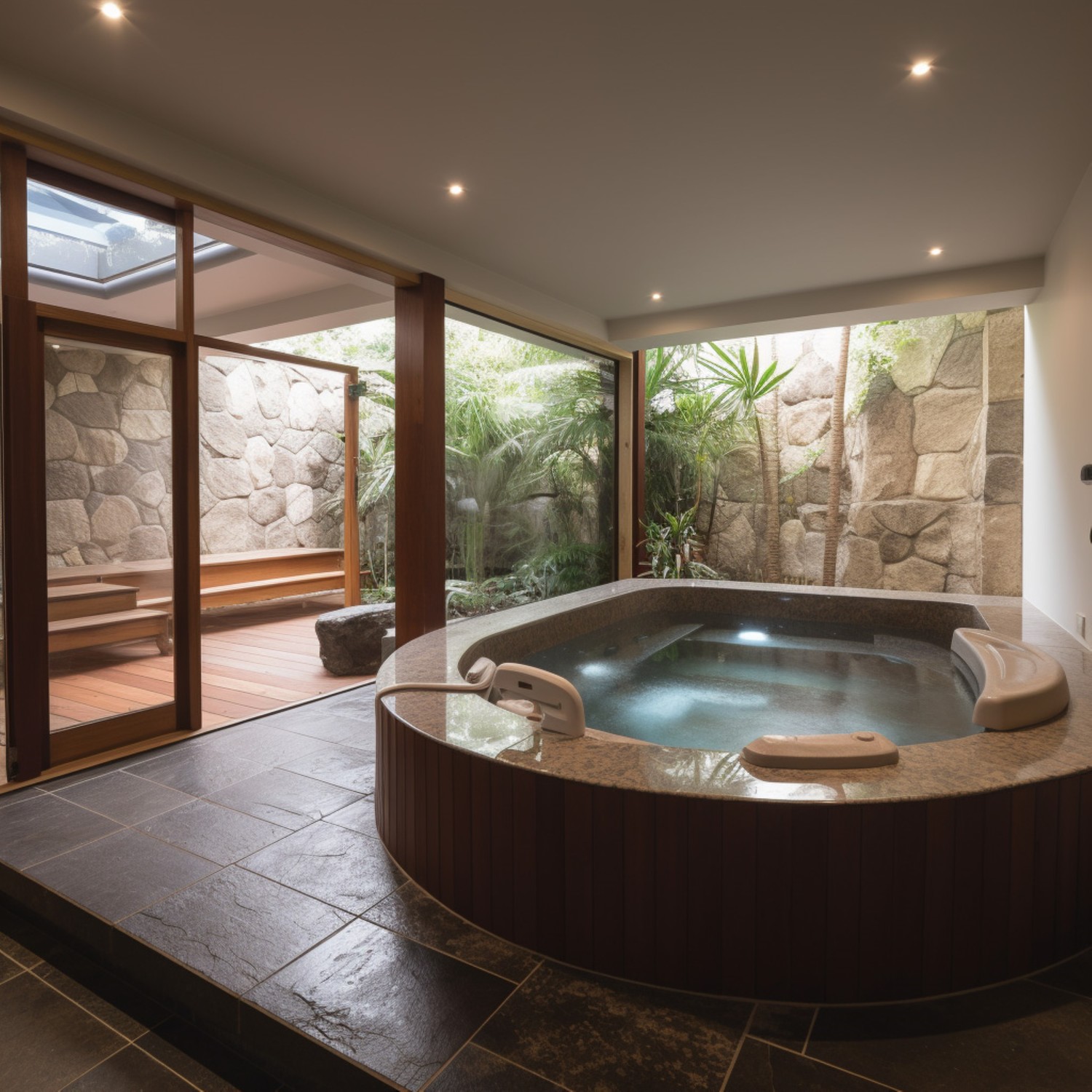Soundproofing and soundproofing pools and hot tubs – How to create a quieter and more relaxing environment
Soundproofing and soundproofing a pool or hot tub is essential for creating a peaceful and harmonious environment, both for those enjoying the bath and for the surrounding area. Noisy pool pumps, water flow, and technical installations can cause disturbing noises that are amplified in both open and closed spaces. By combining sound insulation, vibration damping, and sound absorption, you can reduce noise and improve sound comfort, leading to a more pleasant bathing experience.
What noise problems arise with pools and hot tubs?
Noise from pools and hot tubs has several sources, and it is important to understand where the noise originates in order to address it effectively.
Pool pumps and filtration systems
One of the most common sources of noise is the humming and whirring sounds from pumps and purification systems. The noise can be disturbing, both for those bathing and for nearby neighbors.
Water flow and jets
The sound of waterfalls, bubble jets, and circulating water can be amplified, especially in indoor environments or on stone and concrete surfaces.
Vibrations and resonance noise
Pumps and other technical equipment can create low-frequency vibrations that propagate through the ground, causing the sound to spread and become more difficult to dampen.
Echoes and sound reflections
Indoor pools and spa areas often have hard surfaces such as tile, glass, and concrete, which create long reverberation times and amplify noise.
To minimize noise levels and create a more pleasant atmosphere, you need to use the right combination of sound insulation, sound absorption, and vibration damping.
How to soundproof and dampen a pool or hot tub
To effectively reduce noise, you need to combine several methods, adapted to the sound source and the environment.
Soundproof and enclose pool pumps and technical equipment
By reducing both airborne and structure-borne noise, the noise level is significantly lower and the environment more pleasant.
Dampen vibrations to reduce resonance noise
By breaking the sound transmission at the source, you prevent vibrations from spreading to nearby surfaces.
Sound-absorbing screens and panels to reduce noise propagation
These measures reduce sound propagation and make the environment quieter and more pleasant.
Soundproof indoor pools and spa areas
The sound problem is greater in indoor pools, where hard materials such as tiles and glass create long reverberation times. To create more pleasant acoustics, you should:
- Install sound-absorbing ceiling panels to reduce sound reflections.
- Use sound-absorbing materials on the walls, such as acoustic panels or textiles.
- Place sound-absorbing carpets or wooden surfaces around the pool to reduce the noise level.
A combination of these measures creates a calmer and more relaxing environment, especially in spa and relaxation areas.
How to soundproof a pool or hot tub
To create a quiet and comfortable bathing environment, you should use a combination of sound insulation, vibration damping, and sound absorption. The most important measures include:
Soundproofing pool pumps and technical equipment
Encapsulate or build sound-absorbing cabinets.
Vibration damping
Use rubber mats, spring mounts, and damping discs to stop vibrations.
Sound-absorbing panels and screens
Reduce sound reflections from hard surfaces by installing sound-absorbing materials.
Indoor pools and spas
Use acoustic panels and textiles to reduce reverberation and improve the sound environment.







